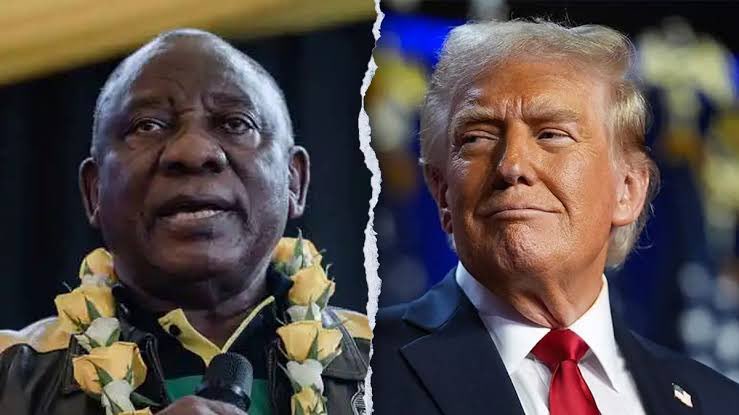News
Afrikaner Leaders Eye Minerals-First Pact to Reset US-South Africa Relations

For years, relations between Pretoria and Washington have drifted into uneasy territory. Trade spats, political differences, and tariff battles have strained ties that once promised so much. Now, three Afrikaner leaders believe they’ve found the reset button: South Africa’s minerals.
Corné Mulder of the Freedom Front Plus, alongside businessmen André Pienaar and Chris Opperman, are pushing for a minerals-first trade pact that would not only smooth over frosty relations with the US but also ignite South Africa’s sluggish economy. Their pitch? If South Africa makes its vast mineral wealth central to a new trade deal, the US could match it with investment, offtake commitments, and long-term cooperation.
Lobbying in Washington
The trio spent last week in Washington, where they engaged American policymakers and business leaders with their vision. Their proposal landed as South African Trade Minister Parks Tau and his delegation held parallel talks with US officials, seeking to lower the 30% tariffs imposed on SA exports during Donald Trump’s presidency.
But Mulder and his colleagues aren’t content with tariff reductions alone. They see an opportunity for what they call a “spectacular reset” in relationsanchored in platinum, manganese, vanadium, rare earths, and titanium.
Beyond Tariffs: A Vision for Strategic Minerals
At the core of their plan is access. South Africa would grant the US strategic access to its mining and refining operations, while Washington would commit to long-term offtake deals and help finance processing capacity. This, they argue, goes beyond the resource headlinesit’s about throughput, infrastructure, and jobs.
The proposal even touches on sensitive ground: exemptions for US investors from South Africa’s mandatory broad-based black economic empowerment (B-BBEE) requirements. Instead, the trio suggest a voluntary investment code inspired by the Sullivan Principles, which once guided US companies during the apartheid years.
Security, Trade Corridors and Shared Platforms
Mulder’s vision extends past economics. He wants collaboration on ports, logistics, and high-tech platforms for data analytics, cargo monitoring, and law enforcement. The argument is that secure trade corridors could reduce risk premiums, attract new investors, and even help tackle global drug syndicates and smuggling networks that affect both countries.
Projected Economic Impact
The numbers being floated are big and bold. Mulder claims a minerals-first pact could lift South Africa’s GDP by $40 billion (about R690 billion) and create half a million jobs across mining, processing, energy, and logistics. Investment rates could rise from 15% to 25%, spurring annual growth of 5% and halving unemployment over time.
For the US, the benefits are pitched as equally attractive: over $75 billion in returns across minerals, LNG exports, technology, and agriculture.
A Bold Gamble with Political Undertones
What makes this proposal striking is not just its scale but its politics. It comes at a moment when South Africa is juggling fraught ties with Washington, navigating a new Trump administration, and still facing criticism over its stance on global conflicts.
The trio’s suggestion to exempt US investors from B-BBEE requirements is likely to spark heated debate at home, where economic transformation remains deeply contested. Some will see it as pragmatism in the name of growth; others as undermining decades of hard-fought policy aimed at redressing inequality.
For now, it’s just a proposal, but one with the potential to reshape South Africa’s trade diplomacy. Whether Pretoria embraces it or not, the minerals-first idea has opened a new chapter in the conversation about how the country engages with one of its most powerful trade partners.
{Source: The Citizen}
Follow Joburg ETC on Facebook, Twitter , TikTok and Instagram
For more News in Johannesburg, visit joburgetc.com



























